Introduction
The Lithuanian University of Health Sciences is a medical university located in Kaunas, Lithuania. It was formed in 2010 by the merger of the Kaunas Medical School and the Lithuanian Veterinary School.
Overview
Number of students: about 6,283 students.
Number of faculty: 1,107 administrative staff.
History and establishment
The history of its Faculty of Medicine dates back to 1919. In 1922, it became the Faculty of Medicine of the University of Lithuania. After the closure of the University of Kaunas in 1950, it became an independent institution named Kaunas Institute of Medicine until 1998. From 1998 to 2010, it was named Kaunas University Medical School.
The Faculty of Veterinary Medicine was established in 1922 as the Veterinary Department of the Faculty of Medicine of the University of Kaunas. It was closed in 1929 due to lack of funds, reopened in 1936, closed again in 1943, and gradually recovered and developed after many difficulties after the war. In 2001 In 2000, the Lithuanian Veterinary Institute and the Lithuanian Institute of Animal Sciences were incorporated into the college. In 2010, it merged with the Medical School of Kaunas University to form the Lithuanian University of Health Sciences.
School Strength
Teaching Staff: It has a professional team of teachers who have rich teaching and practical experience in medicine, veterinary medicine and other related fields, and can provide students with high-quality educational guidance.
Teaching Resources: The school is equipped with advanced teaching facilities, such as modern laboratories, simulated wards, operating rooms, etc., so that students can practice in a close-to-real environment and improve their clinical skills. At the same time, the school's library has a rich collection of medical books and electronic resources, which provides strong support for students' learning and research.
Scientific Research Results: It has carried out extensive scientific research in the fields of medicine and veterinary medicine, and has achieved a series of important scientific research results. For example, there have been certain breakthroughs in the research of disease diagnosis, treatment methods, animal health and disease prevention, and other aspects, which have contributed to the development of related fields.
International Cooperation: It actively carries out international cooperation and exchanges, and has established cooperative relations with universities and scientific research institutions in many countries. Through student exchange programs, teacher visits, joint scientific research and other forms, it has broadened the international vision of students and teachers and enhanced the international influence of the school.
Nature of the institution
Public university.
Educational philosophy
Committed to cultivating professionals in the fields of medicine and health sciences with solid professional knowledge, good professional ethics and social responsibility. Emphasis is placed on the combination of theory and practice, and on cultivating students' clinical practice ability and scientific research innovation ability, so that students can contribute to the cause of human health in their future work.
Key laboratories and disciplines
Key disciplines: Clinical medicine, pharmacy, nursing, public health, veterinary medicine, etc. are the key disciplines of the school. Clinical medicine has in-depth research and practice in the diagnosis, treatment and prevention of diseases; pharmacy has achieved many results in the fields of drug research and development, drug analysis, etc.; nursing focuses on cultivating students' clinical nursing skills and nursing management capabilities; public health is committed to studying group health issues and public health policies; veterinary medicine has advantages in animal disease prevention and control, animal nutrition and reproduction, etc.
Key laboratories: The school has a number of key laboratories related to medicine and veterinary medicine, such as molecular medicine laboratories, drug research and development laboratories, animal disease prevention and control laboratories, etc. These laboratories are equipped with advanced instruments and equipment, providing good conditions for scientific research work and an important platform for students' practical teaching and scientific research innovation.
Department Settings
The school has the following departments:
Department of Medicine: including the School of Medicine, the School of Dentistry, etc., covering multiple professional directions such as clinical medicine and oral medicine, and cultivating professional talents in the medical field.
Department of Pharmacy: that is, the School of Pharmacy, mainly cultivates students majoring in pharmacy, involving knowledge and skills in drug research and development, production, quality control, etc.
Department of Nursing: The School of Nursing focuses on cultivating nursing professionals, focusing on cultivating students' clinical nursing practice ability and nursing management ability.
Department of Public Health: The School of Public Health is committed to studying public health issues, cultivating public health professionals, and providing support for protecting public health.
Department of Veterinary Medicine: including the School of Veterinary Medicine and the School of Animal Science, mainly cultivating professionals in the fields of veterinary medicine and animal science, involving knowledge and skills in animal disease prevention and control, animal nutrition and reproduction, etc.
Rankings
Ranked 115th in the 2022 QS Emerging Europe and Central Asia University Rankings.
Ranked 1553rd in the 2022-2023 US News Best Global Universities Rankings, 549th in the Best Global Universities in Europe, and 632nd in Clinical Medicine.
Expenses
Tuition fees: Tuition fees vary for different majors. Undergraduate tuition fees are approximately 2,300-4,000 euros per year, and master's tuition fees are approximately 2,500-4,500 euros per year.
Living expenses: Monthly living expenses are approximately 500-800 euros, including accommodation, food, transportation, daily necessities, etc. The specific expenses will vary depending on personal lifestyle and consumption habits.
Campus
Campus location: Located in Kaunas, Lithuania, Kaunas is the second largest city in Lithuania, with rich historical and cultural heritage and good urban facilities. The campus is surrounded by convenient transportation and complete living facilities, including supermarkets, restaurants, cafes, banks, etc., which are convenient for students' daily life.
Campus facilities: The campus has complete teaching and living facilities. Teaching facilities include modern teaching buildings, laboratories, libraries, etc., providing students with a good learning environment. In terms of living facilities, the school has student dormitories that provide safe and comfortable accommodation conditions. There are different types of dormitories such as single rooms and double rooms to choose from. In addition, there are canteens, gymnasiums and other facilities to meet students' dietary and physical exercise needs.
-
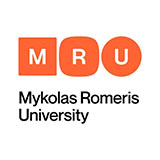
Mykolas Romeris University
-

LCC International University
-

Vytautas Magnus University
-

ISM University of Management and Economics
-
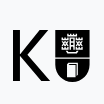
Klaipeda University
-
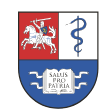
Lithuanian University of Health Sciences
-
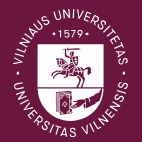
Vilnius University
-

Vilnius Gediminas Technical University
-

SMK College of Applied Sciences
-
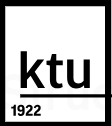
Kaunas University of Technology
-

Mesoamerican University
-

Istmo University
-

Mariano Galvez University of Guatemala
-

Regional University of Guatemala
-

Galileo University
-

Francisco Marroquín University
-

Rafael Landívar University
-

University of the Valley of Guatemala
-

University of San Carlos of Guatemala
-

Technological Institute of Tlaxcala Plateau
-

Golfo University
-

Technological University of South Sonora
-

Technological University of Huejotzingo
-

Tizimín Institute of Technology
-

Chilpancingo Institute of Technology
